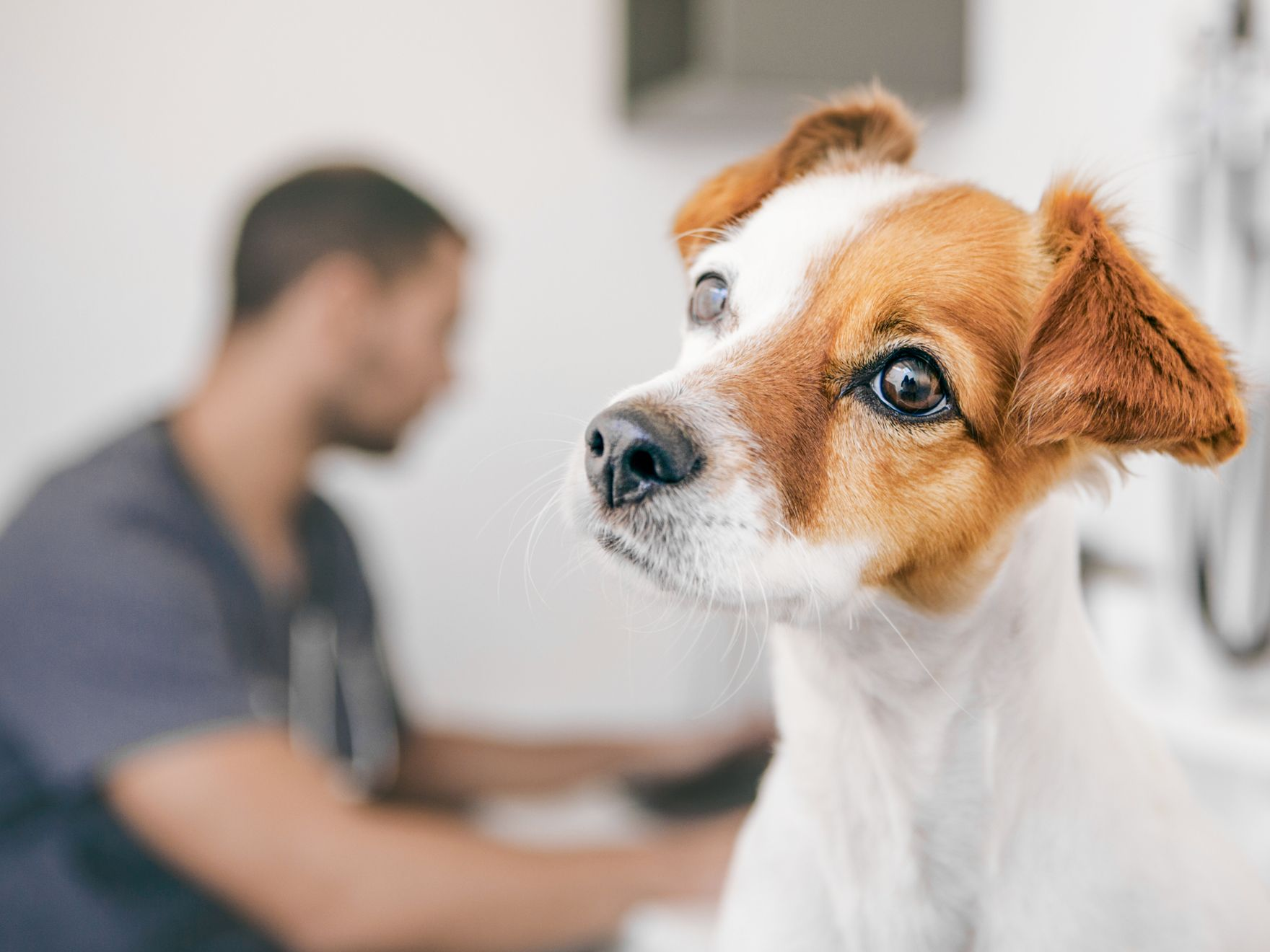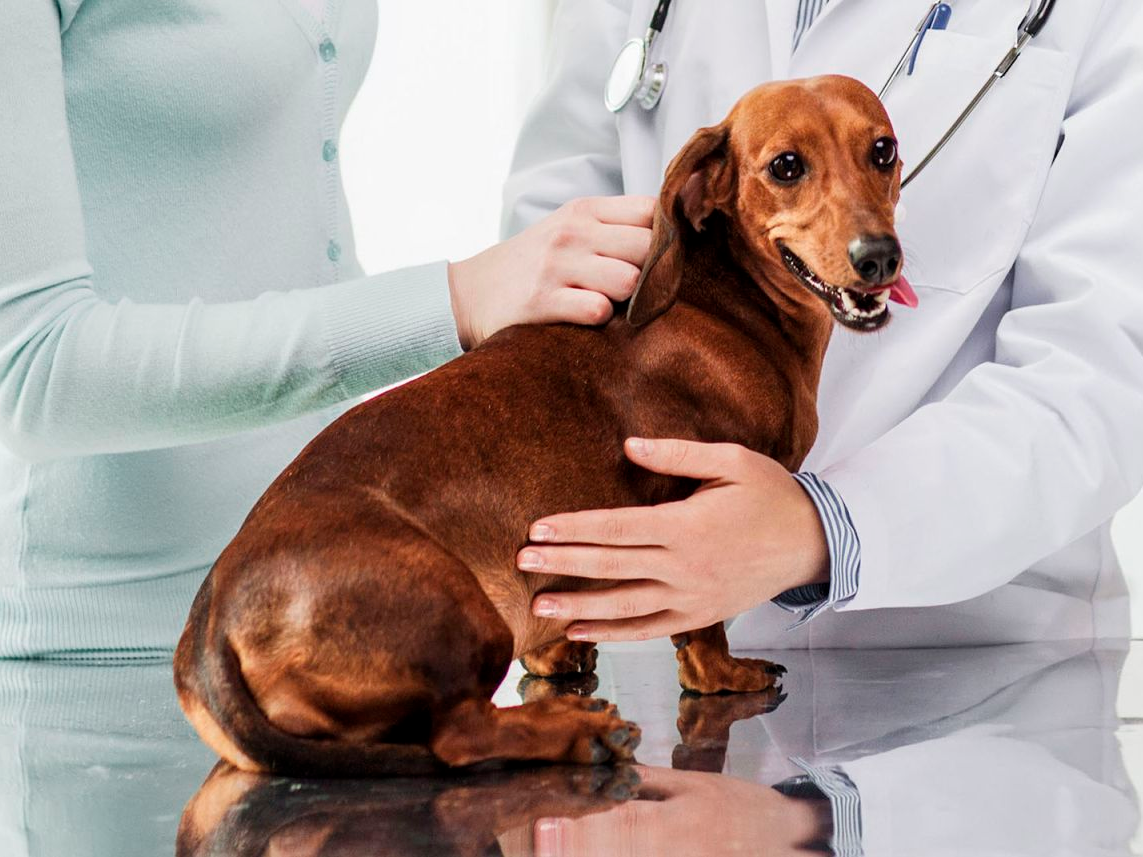When and how to deworm your puppy?
Puppies are famous for exploring. They sniff, lick, and play with whatever interests them. One of the downsides to all that exploring is the possibility of your dog getting worms. Puppies can be born with them or pick them up from other dogs’ or animals’ faeces, bugs, worms, slugs, and snails. A puppy’s immature immune system makes them especially susceptible to illnesses caused by worms. Fortunately, most are easily treatable by your vet.
Here are common questions about worm prevention in puppies.
Article

What is deworming a puppy?
If your veterinarian finds that your puppy has worms using a fecal test, they will prescribe a medication that kills the adult worms. The act of administering medicine to kill worms or internal parasites is called deworming.
However, deworming your puppy only kills the adult worms currently in your puppy’s body. It will not prevent any future infestations. Puppies need to be on a regular deworming schedule and prevention routine as part of their overall good health management to keep worms at bay. It is, of course, safe for your puppy.
Puppies have lots of opportunities to pick up worms in their everyday life, right from the start. Larvae lie dormant in the mother’s muscles and reanimate with pregnancy hormones. They grow to the adult stage and migrate to the mother’s blood, travelling through the placenta or the mother’s milk.
Your puppy can pick up worms in other ways, too.
- Grass, fleas, mosquitos, rodents, birds and bugs can harbour worm eggs. As your puppy plays, the eggs stick to their fur and paws leading your dog to ingest the eggs as they groom.
- Infected animals and birds defecate in the waters of ponds, puddles, and lakes leaving worms, larvae or eggs behind. If your puppy drinks the water, the worms can be ingested.
- Puppies can get tapeworms from undercooked or raw meat.
- Many worms are zoonotic; they can spread between animals and humans.
Roundworms and hookworms are common and live in your puppy’s stomach and intestines. Worms get pulled through with the waste as it makes its way through your dog’s intestines, so you may see worms or worm segments in your puppy’s stools.
There are different formats for your dog’s deworming medicine: tablets, tasty treats, paste to be given orally, topical liquid administered directly on the skin, and by injection. You can administer most dewormers yourself, but the worms need to be identified first (which is why most over-the-counter products are inadequate—they treat the problem blindly). Once identified, your veterinarian will recommend the correct medication for your puppy and dosage according to their age, weight and health.
The types of worms commonly found in puppies
Roundworms are intestinal parasites that feed on the undigested food in your puppy’s intestines. They are the most common and easy to treat.
- Your veterinarian tests your dog to identify roundworms.
- You may see worms or worm segments in your dog’s excrement or around their tail area.
- Infection is through contact with contaminated faeces and environments, their mother’s milk, or by eating an infected rodent, bird or bug.
- Symptoms of roundworms are slowed growth, anaemia, a dull coat, a pot belly and lethargy. Large infestations can cause vomiting, diarrhoea, decreased appetite, weight loss or even an intestinal blockage, which can be deadly.
- Roundworms are zoonotic, able to spread between humans and animals.
Hookworms can be picked up by ingestion and from contaminated environments. A puppy’s mother can also transmit them through the placenta or her milk. Hookworms ‘hook’ to the intestinal lining and feed off your puppy’s blood, competing for the nutrients your puppy needs to grow and develop properly.
- Faecal float tests identify adult hookworms. Puppies may have to be tested and treated more than once.
- Treatment is a broad-spectrum deworming medication prescribed by a veterinarian.
- Hookworms and hookworm segments may be seen in your puppy’s stools or where they sleep.
- Symptoms of worms are weakness, vomiting, bloody diarrhoea, weight loss and a dull coat.
- Humans can get infected through direct contact with worm eggs.
Tapeworms are long flat worms with multiple segments. Each segment has its own reproductive organs. Fleas and rodents ingest the eggs, which then hatch and live inside them.
- Puppies contract tapeworms by ingesting the fleas or from eating contaminated raw meat.
- Tapeworms look like a string or grain of rice in your puppy’s stool, the fur around the anus, or where your puppy sleeps.
- You might see your puppy ‘scoot’ along the floor from the worm movement inside their anus.
- A faecal test identifies tapeworms. Treatment is an injection or tablet prescribed by your vet.
- Humans can get tapeworms from eating contaminated meats or from the environment.
Whipworms live and lay eggs in your puppy’s intestines and colon. Their bodies resemble a whip, thus their name. The thick end embeds itself in your puppy and causes discomfort.
- Signs of infestation are bloody diarrhoea, weight loss and anaemia. Most dogs will not show any symptoms of whipworms but a large infestation can be very serious to your puppy’s health.
- Puppies get them through direct contact with faeces or by ingesting the whipworm eggs or larvae in contaminated areas.
- Faecal tests identify whipworms, and several tests and treatments may be needed
- Broad-spectrum dewormer is the usual course of treatment.
Roundworms are intestinal parasites that feed on the undigested food in your puppy’s intestines. They are the most common and easy to treat.
- Your veterinarian tests your dog to identify roundworms.
- You may see worms or worm segments in your dog’s excrement or around their tail area.
- Infection is through contact with contaminated faeces and environments, their mother’s milk, or by eating an infected rodent, bird or bug.
- Symptoms of roundworms are slowed growth, anaemia, a dull coat, a pot belly and lethargy. Large infestations can cause vomiting, diarrhoea, decreased appetite, weight loss or even an intestinal blockage, which can be deadly.
- Roundworms are zoonotic, able to spread between humans and animals.
Hookworms can be picked up by ingestion and from contaminated environments. A puppy’s mother can also transmit them through the placenta or her milk. Hookworms ‘hook’ to the intestinal lining and feed off your puppy’s blood, competing for the nutrients your puppy needs to grow and develop properly.
- Faecal float tests identify adult hookworms. Puppies may have to be tested and treated more than once.
- Treatment is a broad-spectrum deworming medication prescribed by a veterinarian.
- Hookworms and hookworm segments may be seen in your puppy’s stools or where they sleep.
- Symptoms of worms are weakness, vomiting, bloody diarrhoea, weight loss and a dull coat.
- Humans can get infected through direct contact with worm eggs.
Tapeworms are long flat worms with multiple segments. Each segment has its own reproductive organs. Fleas and rodents ingest the eggs, which then hatch and live inside them.
- Puppies contract tapeworms by ingesting the fleas or from eating contaminated raw meat.
- Tapeworms look like a string or grain of rice in your puppy’s stool, the fur around the anus, or where your puppy sleeps.
- You might see your puppy ‘scoot’ along the floor from the worm movement inside their anus.
- A faecal test identifies tapeworms. Treatment is an injection or tablet prescribed by your vet.
- Humans can get tapeworms from eating contaminated meats or from the environment.
Whipworms live and lay eggs in your puppy’s intestines and colon. Their bodies resemble a whip, thus their name. The thick end embeds itself in your puppy and causes discomfort.
- Signs of infestation are bloody diarrhoea, weight loss and anaemia. Most dogs will not show any symptoms of whipworms but a large infestation can be very serious to your puppy’s health.
- Puppies get them through direct contact with faeces or by ingesting the whipworm eggs or larvae in contaminated areas.
- Faecal tests identify whipworms, and several tests and treatments may be needed
- Broad-spectrum dewormer is the usual course of treatment.
When to deworm puppies
Infected puppies can react more severely to parasites than adult dogs. Worms feed off the nutrients your puppy needs for growth and development. Therefore, puppies need their first deworming at a very young age. Your vet will set up a schedule that fits your puppy’s needs and walk you through the process of deworming your puppy.
The best time to deworm puppies
Any time you suspect your puppy has worms is a good time to deworm your puppy. Most puppies need their first deworming at two weeks. Many breeders and rescues follow a deworming schedule up to the time puppies are weaned and ready to leave for their new homes.
If you aren’t sure your puppy was dewormed properly, schedule a veterinary check-up promptly to start the deworming series.

How to get rid of worms in puppies?
Fortunately, worms are usually easy to treat. Your veterinarian will order a faecal test to determine the kind of worms present. Once identified, they will prescribe a deworming medicine and schedule.
Dewormers are usually broad-spectrum medications, meaning they work on many types of worms. You have the options of deworming tablets or paste, liquid puppy dewormer, spot-on pipettes administered directly to the skin, and tasty treats. Injections are used for some types of worms.
A common misunderstanding is that one deworming prevents future worms. However, the deworming medicine only kills the worms present at the time of the deworming. Your puppy can come in contact with worms anytime, requiring more deworming medicine. Therefore, keeping your puppy on a regular deworming schedule is vital.

The best dewormer for puppies. Does it exist?
There is no best dewormer for puppies, sorry. It depends on the specific worms present. Age, weight and health also factor in. Your veterinarian is your best resource for prescribing the dewormer your puppy needs.
Over-the-counter deworming medications aren’t always effective. Dosages can be incorrect, or the active ingredients may be ineffective. The safest and most effective dewormers are vet-recommended.

What to expect after deworming a puppy?
Most dewormers are very safe, with rare severe side effects. But you may notice some things that concern you. It’s always appropriate to speak to your vet about them.
- Up to two weeks after deworming, dead worms can be in your puppy’s faeces as the worms are expelled.
- When all the worms die at once the intestines can become inflamed causing stomach upset, diarrhoea or vomiting. Your puppy should be back to normal in two or three days.
Natural dewormers for puppies
Diatomaceous earth is a common home remedy for worms. It’s not always effective in killing all the worms. When worms go untreated or the treatment is ineffective, your puppy’s health is at risk. Your veterinarian will determine the best course of treatment.
Eight tips to prevent future worm infestations in your dog
1. Practise a regular deworming schedule
2. Keep immunisations current
3. Pick up your puppy’s stools right away and use gloves
4. Wash your hands with soap after handling faeces, or when around an infected puppy or animal
5. Provide clean drinking water daily
6. Avoid letting your puppy drink from puddles, lakes, and ponds that can harbour faeces from other animals, birds or bugs
7. Limit exposure to areas frequented by large numbers of dogs or animals, any of whom might be infected
8. Don’t skip yearly vet visits—they’ll test for worms
Related articles
Like & share this page

